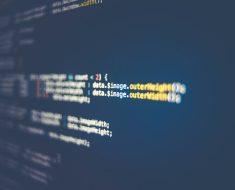Hello, I need your help.
I have a python project, but I would protect it with a license.
I’m lost with that.
Do you want an open-source license? Try choosealicense.com
1 Like
Yes I want an open-source no-commercial license, do you know any?
Did you click on the link?
Yes, but I don’t see non-commercial license
In what way does a license “protect”? Isn’t it rather the opposite? Without a license, people aren’t allowed to “use” your stuff, and with a license, you allow some usage. That’s what licenses do, no?
I say ‘protect’ to prevent content theft
If you mean “the license depends on who the user is”, you may want to look into Multi-licensing – Wikipedia. For instance, sometimes code is released under one license for educational use and another license for companies.
But really, I just wouldn’t worry about this. I’m more interested in sharing useful code than controlling it. And I don’t personally have the resources to sue someone for infringement if it came down to that.
How does a license prevent content theft? A license is literally a permission to do things.
By default, anything you upload belongs to you and noone can use it. You only need a license if you want to allow others to use it.
It is already protected by copyright law. No one can use your code without a license.
Edit:
This is not legal advice; it is just common knowledge. You have to consult an attorney to get legal advice about the matter.
You can find a listing of OSI approved open source licenses, popular in various communities, at
https://opensource.org/licenses/?categories=popular-strong-community.
Perhaps the two most popular ones are the MIT and Apache 2 license – you cannot really go very wrong with those, I think.
Many licenses have restrictions for users of the software in regards to patents, so they can protect for instance in that regard. Apart from that a license can also protect an author against liability issues.
If instead you want a maximally permissive open source license (it doesn’t seem you do), then you could consider the Blue Oak Model license – see a nice post here: https://writing.kemitchell.com/2022/08/05/Public-Domain-Software. (It’s definitely better, imo, than the WTFPL and the Unlicense – but you wouldn’t want either of those either given that you’re asking about protections for yourself rather than protections for any users.)
The following source may also be useful: Open Source Licensing Software Freedom and Intellectual Property Law by Lawrence Rosen Maybe a bit dated, but gives a pretty extensive overview, and is very readable for non-lawyers.
A popular licence is the GPL:
Open source and ‘no commercial usage’ can’t really go together. By virtue of being open source, it can be used or at least looked at by commercial entities.
You’d have to go non-open-source to effectively limit commercial usage.
Closest is using GPL. That would force anyone releasing code with your library/executable to release the source code for it under the same GPL license.
Imagine for a second that there was a license that disallowed commercial usage, but was open-source. It would be a new thing, and have to be defended in court: which sounds expensive. Actually even GPL defense can be expensive. Big companies legally should handle licensing appropriately, but proving misuse, etc. is once again: a court battle.
Happy to say that where I work, any open-source library usage gets a mandatory license check first to make sure its compatible with our stuff.
(This is not legal advice. Seek a lawyer for legal advice.)
Hmm, is that really true? I mean, in non-code contexts, you can license something CC-BY-NC and everything works fine. It won’t truly be “free software” and it won’t be compatible with the GPL, but it’d still be a form of open source. Not as free as other licenses, but freer than “all rights reserved”. IANAL though.
Be careful, that’s an oversimplification. The GPL does not preclude commercial usage or any other usage, and doesn’t even preclude private changes. All it really demands is that, if you give someone a binary, you have to let them have the source too. There is nothing whatsoever preventing me from taking GPL’d source code, making changes, and using it myself (and in fact, I do that all the time); there’s also nothing in the regular GPL to stop me running that on a server and charging people money to access it, although the AGPL tries to plug that loophole.
Nor is this. Definitely seek a lawyer, more specifically, one well versed in copyright law in your jurisdiction, if you need actual advice.





